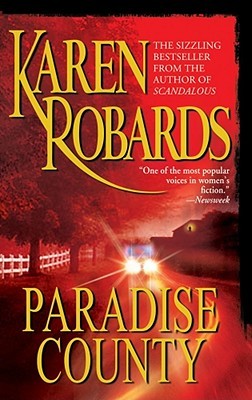DEARLY DEVOTED DEXTER (DEXTER #2)
by Jeff Lindsay
A man who discovers his pants are on fire tends to have very little time to worry about somebody else's box of matches.
I thought I was going to like this better than the first installment, but I turned out to be wrong. There were a couple of things that made me like this, of course. First, I appreciated the effort that Dexter was trying to be normal; and it certainly was interesting to watch and see him try. Second, someone was finally becoming suspicious of our good old serial killer.
But I have a few issues too.
The Dark Passenger seemed to be tugging on his sleeves to much, wanting to be the driver. How was Dexter actually able to resist this temptation? Again, he seemed too good to be true. Or indeed, maybe this was just the effect of trying to act "human" long enough. That being the case, one wouldn't really be able to expect too much slashing for Dexter's part here in Dearly Devoted Dexter. Speaking of which, Jeff Lindsay couldn't seem to think of new cases aside from cutting off body parts. But at least this time there was a twist.
Sure, Dexter was becoming more human, and yet he had shrugged his shoulders at Sergeant Doakes coldly. But sometimes, he would be narrating how happy he was, etcetera. I'm just saying that Lindsay should be clear about this "feelings" thing because it was inconsistent throughout the story.
There were more things I was quite comfortable about. Particularly, the thing between Debs and Kyle. Like what our now Sergeant Morgan always say, "What the fuck that does mean?" Seriously, when did that idea even emerge out of thin air, and dear Lindsay, we'd appreciate some help, you know. You could at least have given us some explanation. And, more importantly, is this problem that was also present in the first book and I had hoped would disappear: like other authors, Dexter was favored too much by his creator. He was always safe. And although there was certainly some suspense leading to his capture, in the end the readers would feel okay since we all knew deep inside that there was no way he would die, after all. True enough, look at what happened at the last chapter. Our dear boy was saved at the nick of time, while poor Doakes had to suffer too much. Okay, I don't really like the guy, but you'd have to feel bad for him. Lindsay treated him too badly and unfairly, like what he did to La Guetta at the first book. I'm seeing a pattern here. Hmm. Sounds suspicious.
Some tidbits were predictable (such as the thing about Cody), but most of them weren't, so I guess that's a plus point.
Maybe I'm being quite unfair to Lindsay too. But hey, don't take it the wrong way. I love Dexter to death and that's enough reason for me to go on reading to the end of the series.



